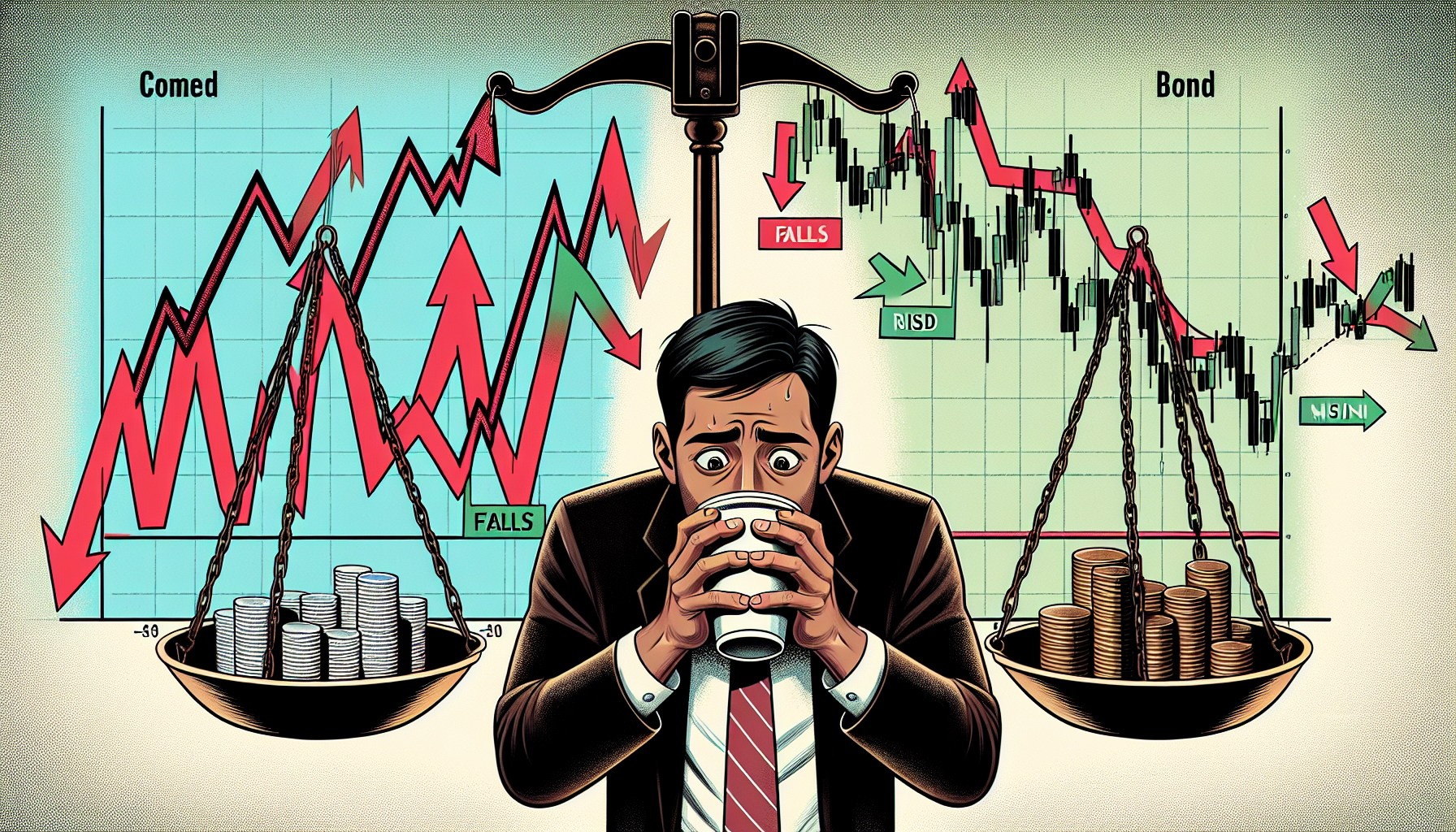
tl;dr
Investors are torn as stocks chase record highs while bonds scream warnings of a looming economic slowdown, creating a high-stakes clash over the Fed's ability to steer the economy.
**The Great Divide: Why Stocks and Bonds Are Betting on Two Different Futures for the U.S. Economy**
Investors in the U.S. markets are playing a high-stakes game of musical chairs, with equities and fixed-income assets pointing to wildly different outcomes for the economy. According to Shawn Tuteja, a managing director at Goldman Sachs, the disconnect between these two groups is growing sharper—and the stakes couldn’t be higher.
**Bonds Sound the Alarm, Stocks Stay Optimistic**
Fixed-income investors are clearly worried. Tuteja notes that the sharp drop in bond yields suggests they’re bracing for more U.S. Federal Reserve rate cuts. Lower yields often signal fears of economic weakness, as investors seek the safety of government debt amid uncertainty. For these investors, the message is clear: the economy is heading for a slowdown, and the Fed’s aggressive rate-cutting campaign is the only defense.
But the stock market is telling a different story. The S&P 500 has been hitting record highs, fueled by a surge in “low-quality” and speculative stocks—think tech darlings and high-risk, high-reward plays. Tuteja calls this the “most economically sensitive” group, implying that these companies are betting on the Fed’s ability to engineer a soft landing. Equity investors, it seems, are betting that the economy isn’t as fragile as recent jobs data suggests. They’re banking on fiscal stimulus from the government to spark a rebound by 2026.
**A Tale of Two Markets**
The tension between these two camps is palpable. Fixed-income investors are fixated on the risk of a jobs data collapse, while stocks are dancing to a different rhythm. Tuteja’s analysis highlights a critical question: Who’s right? The answer, he argues, will be written in the next round of economic reports.
Upcoming data—whether it’s employment numbers, inflation readings, or consumer confidence surveys—could tip the scales. A single “print” (a data release) might confirm whether the economy is robust enough to sustain stock gains or if the bond market’s fears are justified. For investors, this means markets could swing wildly in the coming months, as each data point fuels a battle of narratives.
**What Does It All Mean for You?**
This divide isn’t just an academic debate. It’s a reflection of the broader uncertainty facing investors. If the Fed’s rate cuts fail to stave off a downturn, bond markets could see a rush to safety, while stocks might face a brutal correction. Conversely, if the economy defies expectations and fiscal stimulus takes hold, the S&P 500 could surge even higher.
So, where do you stand? Are you betting on the bond market’s caution or the stock market’s optimism? As Tuteja notes, “something’s got to give.” The next few months will test not just the economy, but the nerves of investors everywhere.
One thing is certain: in a world where markets are split, the only thing more volatile than the data is the narrative we choose to believe.